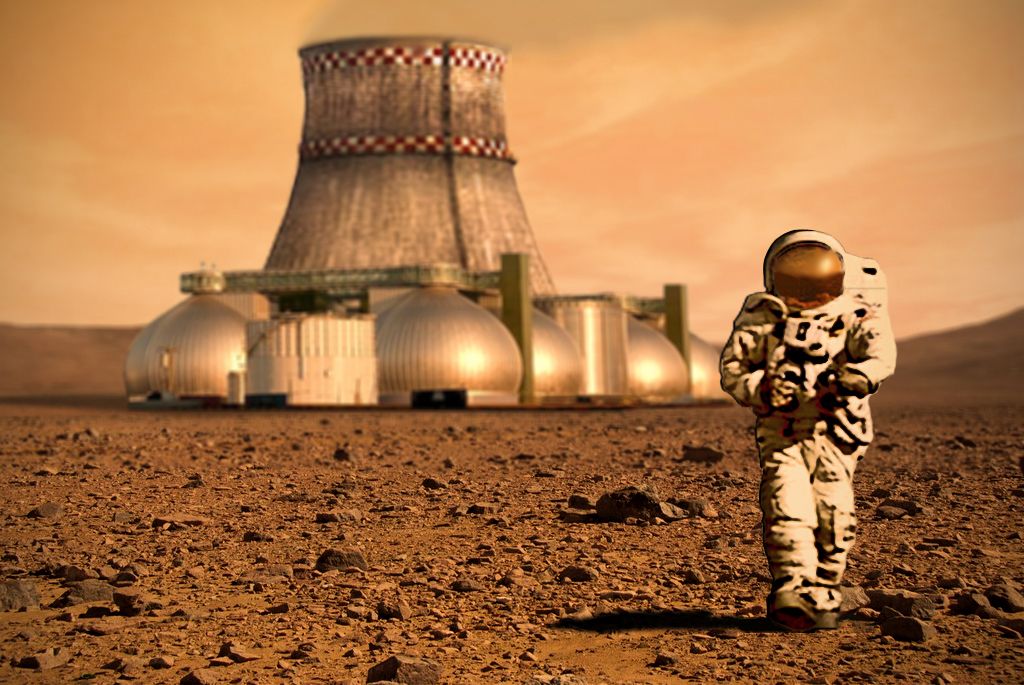Mars One: Read All About It!
| 23 Feb 2016: posted by the editor - Features | |
|
You may not be able to go to Mars yourself, but thanks to Mars One’s latest book, everyone can follow along as the first potential human settlers on Mars prepare for their mission. With Mars One: Humanity’s Next Great Adventure, readers can step inside the experience of these astronaut pioneers as they live out the dreams of millions. “We are very excited about this book because it allows us to share viewpoints on some of the most intriguing questions being asked about the mission,” said Bas Lansdorp, CEO and co-founder of Mars One. In 2012, Mars One announced intentions to establish a permanent human settlement on Mars; they launched their astronaut selection program in 2013 and received thousands of applications. Edited by Norbert Kraft, MD, Mars One’s Chief Medical Officer and head of the crew selection and training committee, as well as committee members James R. Kass, PhD, and Raye Kass, PhD, Mars One: Humanity’s Next Great Adventure provides a behind-the-scenes look at the process and criteria used to choose candidates, as well as fascinating details about their future lives on Mars. The foreword is written by Prof. Dr. Gerard ‘t Hooft, Nobel-Prize winning theoretical physicist. Other contributors include Dr. Mason Peck, Prof. Thais Russomano, and Jamie Guined, M.Ed., MBA. Within Mars One: Humanity’s Next Great Adventure, readers will discover:
The challenges of landing and colonizing Mars may seem daunting, but that has been true for ever leap forward. Mars One’s mission is the next giant leap for mankind, and with Mars One: Humanity’s Next Great Adventure, people everywhere can look behind the curtains of Mars One’s astronaut selection process. About the Authors He has over 20 years of experience in aviation and aerospace research and development. His primary area of expertise is developing physiological and psychological countermeasures to combat the negative effects of long-duration spaceflight. Dr. Kraft’s experiences span Europe, Asia, and the United States, where he has worked for several international space agencies, including the Russian Space Agency and the Japanese Space Agency. Dr. Kraft is an author of over 40 papers in the field of aerospace medicine, including a seminal paper on intercultural crew issues in long-duration spaceflight. He has an M.D. from University of Vienna, Austria, and is a Fellow of the Aerospace Medical Association. Dr. James R. Kass has been working in the field of human spaceflight for more than 30 years. He was an investigator on the first Spacelab mission in the early 80s in the field of neurophysiology. In the decade following, he gained industrial experience at several aerospace companies in Germany, before joining the European Space Agency at its research and technology centre, ESTEC, in the Netherlands. Dr. Kass has trained astronauts and worked on the ground operations teams for several Spacelab / Space Shuttle and MIR missions (including the tragic STS-107), with crews from Russia, USA, Middle and Far East, and several European countries. He has also worked with cosmonauts of the former Salyut space station and astronauts of the first US space station, Skylab. He has participated as scientist and reviewer in several isolation experiments investigating psychology of long-duration isolation, as one will certainly encounter on Mars. Dr. Raye Kass, Professor of Applied Human Sciences at Concordia University, Montreal, Canada, currently spearheads group theory courses at both the undergraduate and graduate levels. Dr. Kass has been highlighted frequently by both national and international press agencies for both her space sciences and group theory research. Dr. Kass has also been invited to be involved in numer- ous space research projects in conjunction with the Canadian Space Agency and NASA, including the Psychological Experiment/Training Programme for the CAPSULS Mission held in Canada, the SFINCCS mission held in Russia, and the NSBRI (National Space Biomedical Research Institute) Ground-based Research Project with the NASA Ames Research Centre in the USA. Dr. Kass is the author of Theories of Small Group Development, as well as the coauthor of three other books on group theory. About Mars One For more information about Mars One, please visit www.mars-one.com. Tags: Mars One |
|
|
|
| Name: | Remember me |
| E-mail: | (optional) |
| Smile: | |
| Captcha | |
